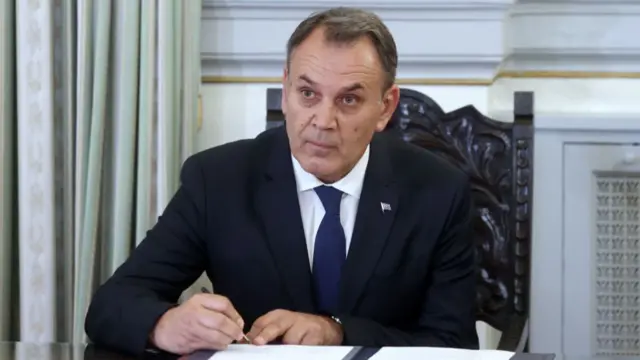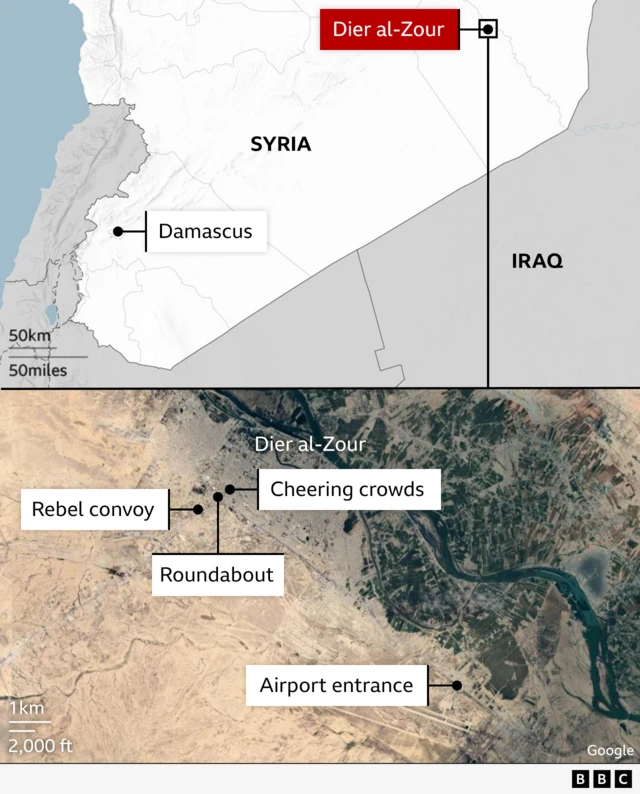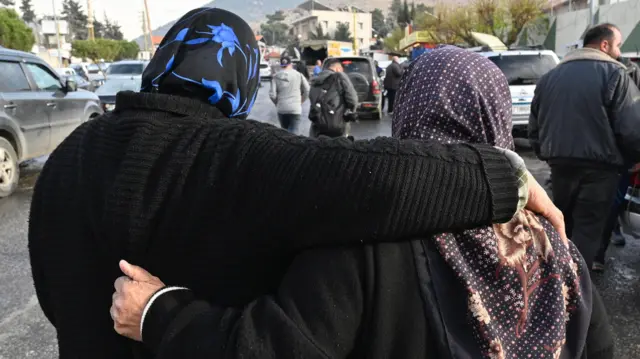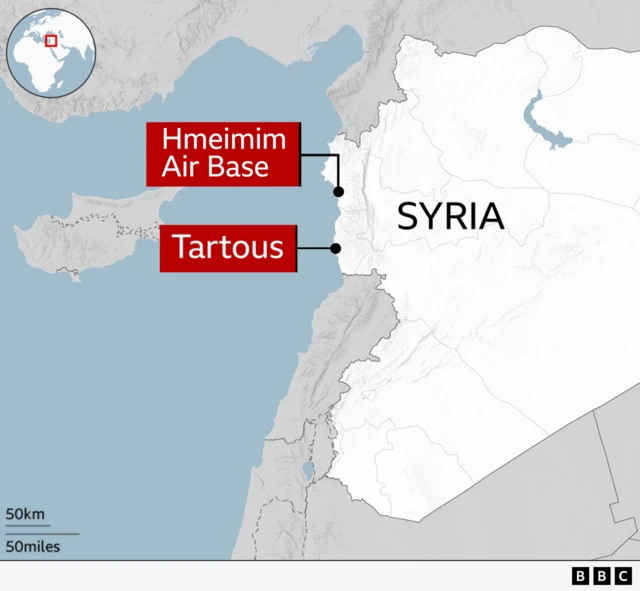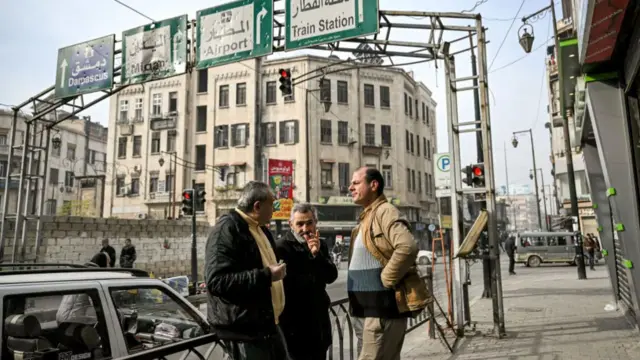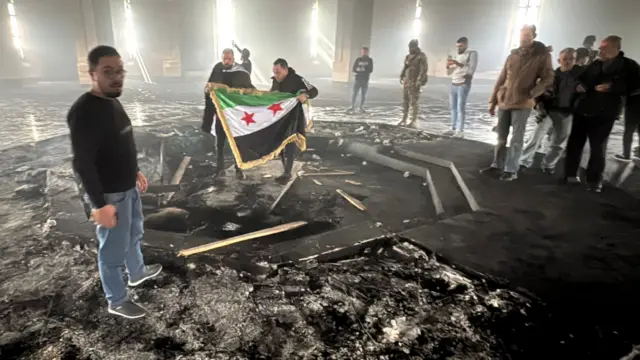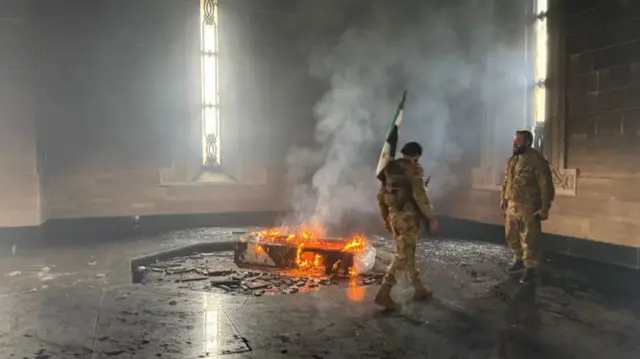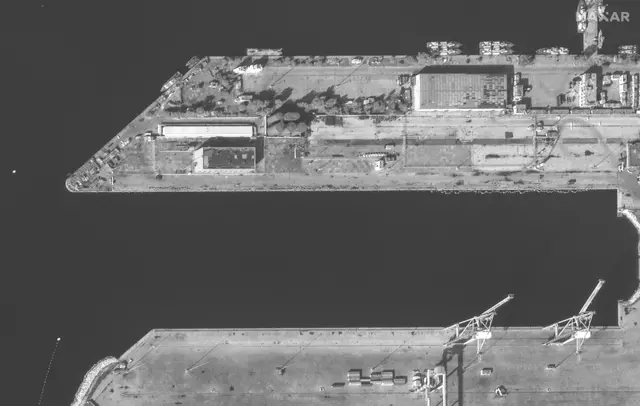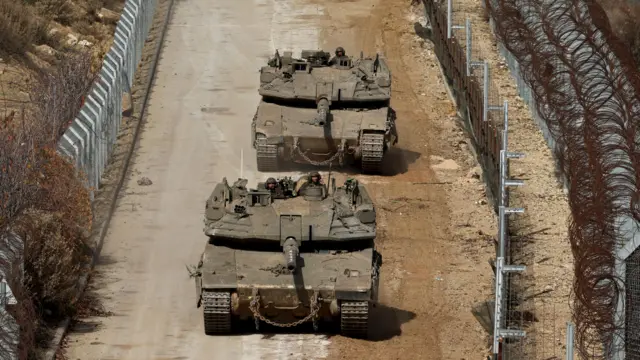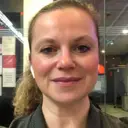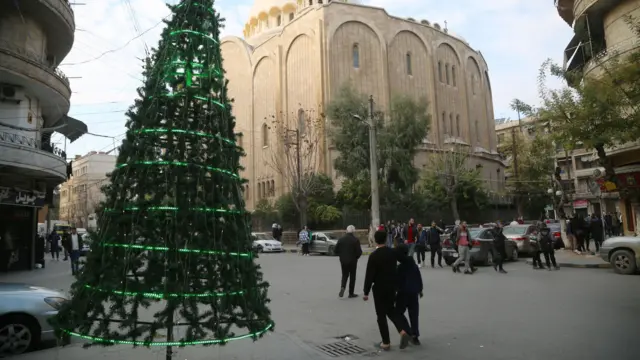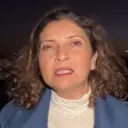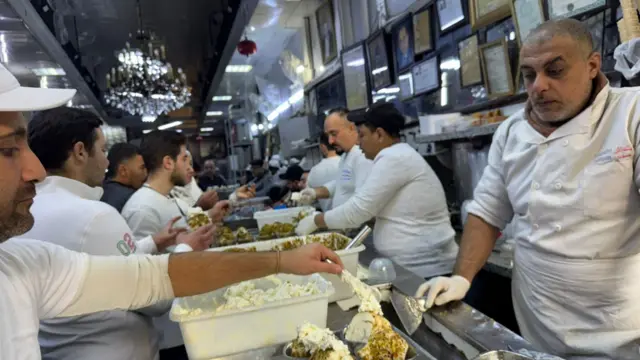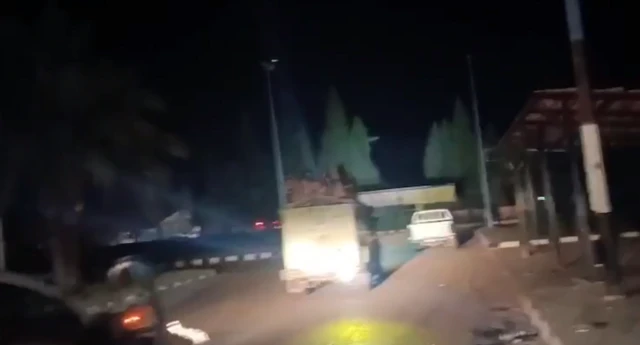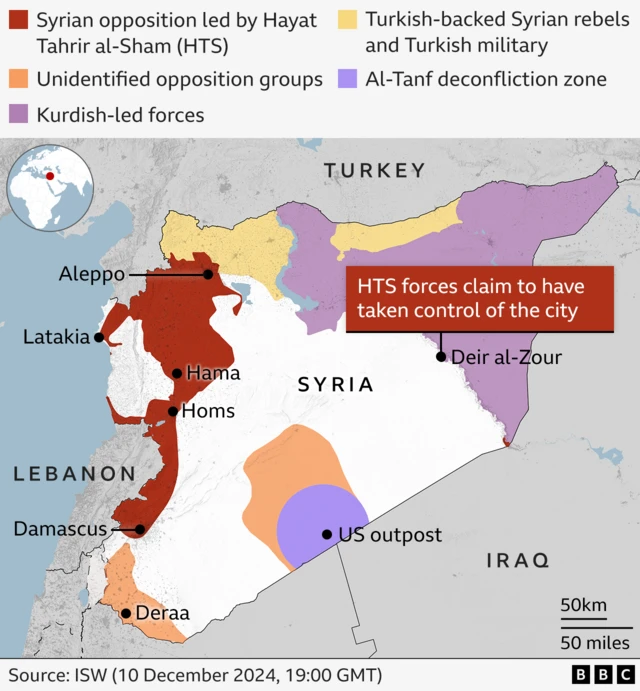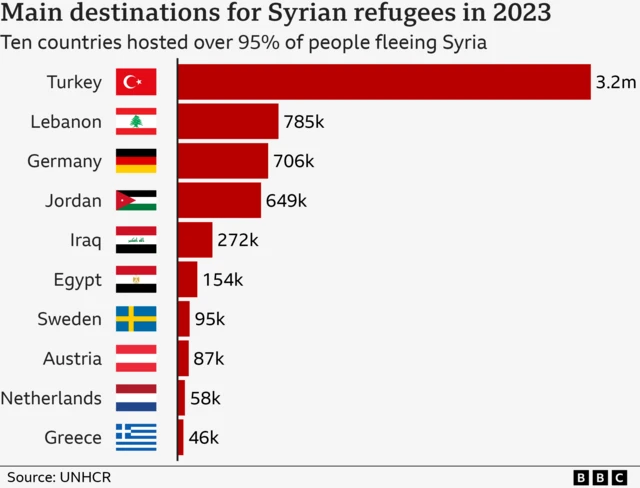Day-to-day life is resuming in Syriapublished at 19:03 GMT 11 December 2024
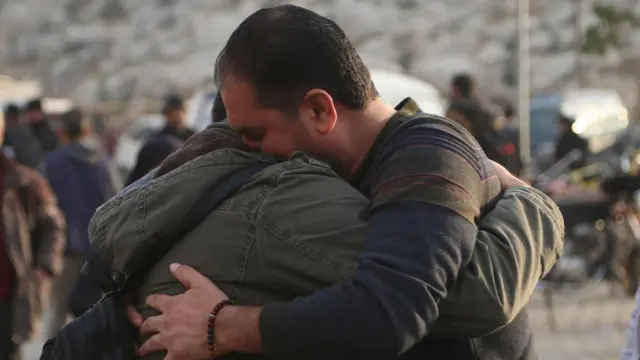 Image source, EPA
Image source, EPAThe sun has set on day three of Syria since the downfall Assad regime, and we are ending our live coverage for the day.
Today saw more refugees return to their homeland as interim Prime Minister Mohamed al-Bashir called on Syrians abroad to return home. Daily life is slowly returning, but at the same time, those who are now fearful for what may come next are planning their escape.
Rebels set ablaze the tomb of Hafez al-Assad, father of dictator Bashar al-Assad and his family - a sign of the deep hatred felt by those who suffered under the regime.
Meanwhile, Israel continued its strikes against the country's military facilities and faced calls to remove its troops from the buffer area.
Thank you for joining us today. While this page has now closed, this story will be kept up to date with the latest developments.

